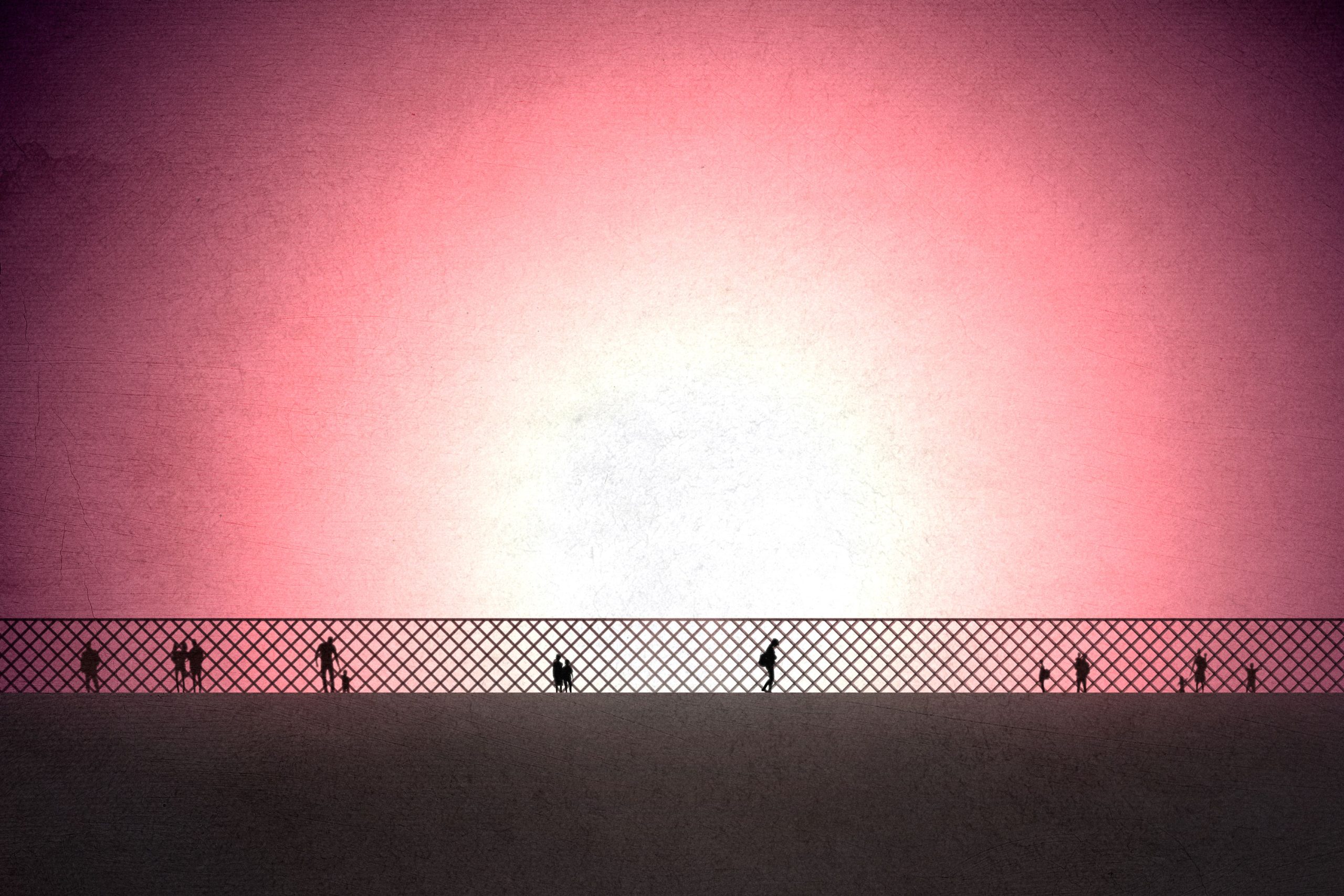
Just one particularly shameful case of the thousands of push-backs from Hungary
Translation is available for this content
Váltás magyarraHungarian police forced a family of six asylum seekers into Serbia unlawfully. The European Court of Human Rights ruled that the Hungarian state had violated the prohibition of collective expulsion. The Hungarian Helsinki Committee represented the Afghan complainants in the case.
The Hungarian state has been treating tens of thousands of refugees and other migrants cruelly at the Serbian border over the past decade. The European Court of Human Rights (ECtHR) has repeatedly ruled since 2021 that push-backs to Serbia, often by force and deception, are, in all cases, a violation of human rights, particularly the prohibition of collective expulsion. The recent Strasbourg ruling highlights the brutality of this everyday practice through a family’s case.
M.D. fled Afghanistan to Iran as a young man, and S.A. fled as a girl. They married and had four children. Their legal situation in Iran was particularly precarious as Afghan refugees, and they decided to continue their flight to Europe for their children’s future.
On 9 January 2019, they entered the transit zone legally in Röszke, Hungary. The Hungarian authorities instantly rejected their asylum application without a fair investigation and expelled them to Serbia. However, Serbia, which the Hungarian authorities considered to be safe for asylum seekers, also refused to accept them, so Hungary expelled the whole family to Afghanistan. To the country where the children had not spent a single day and from which their parents had fled more than 20 years before.
The authorities wanted to deport M.D. and two other Afghan families by plane. They had only been told one day before departure that they had to leave. UNHCR addressed the authorities, asking them to be at least considerate of the children and refrain from deporting them to Afghanistan – to no avail.
On 9 May 2019, the Röszke transit zone witnessed a heartbreaking scene whereby crying women and children and desperate fathers were attacked by police batons. One pregnant woman (not S.A.) fainted and had to be taken to hospital. This seemed to bring the police to their senses, and at least they appeared to postpone the deportation. But this was not the case. M.D.’s family and another Afghan family were put on a bus (the hospitalised woman’s family could stay for the time being), saying that if they could not be deported to Afghanistan, they would be forced back to Serbia.
The eldest son, only 17 at the time, was even escorted off the bus and, without an interpreter or legal assistance, forced to sign a document on behalf of the whole family that they were “leaving voluntarily for Serbia”. The mother, father, and 13, 6, and 4-year-old siblings watched helplessly as M.A., separated from them, had to sign the document in a ring of armed police officers.
It was 10 p.m. when they were pushed to the Serbian side of the border fence. The two families took a long time to find help in Serbia in the pitch dark. The next day, UNHCR issued a press release stating that “Hungary’s actions overnight to force two asylum-seeking Afghan families to leave the country under duress [were] deeply shocking and a flagrant violation of international and E.U. law.”
The Hungarian Helsinki Committee had already represented M.D.’s family in the domestic proceedings. The human rights NGO helped them to appeal to the ECtHR as well.
The Strasbourg court delivered its judgment in September 2024. It ruled that the Hungarian state violated the human rights of the parents and the four children when it collectively expelled and pushed them back, disregarding their individual circumstances. The judgment emphasised that the complainants were children, that the authorities acted in the absence of a valid expulsion order to Serbia, and that a 17-year-old child was forced to make a statement on behalf of the entire family without an interpreter and legal assistance.
The Court has granted €9,000 fair compensation to the family now living in Germany.
“This is the 104th case the Hungarian Helsinki Committee has won in Strasbourg and the seventh in which the European Court of Human Rights has ruled on the blatantly unlawful practice of push-backs. We are proud that our clients are receiving compensation, but we should also keep in mind that these terrible events should never have happened in the first place. Even though both the Strasbourg Court and the Court of Justice of the European Union condemned this practice of forcible returns, it still continues to this day.
We, at the Hungarian Helsinki Committee, will continue to work to ensure that the Hungarian state implements international court judgments and finally stops collective push-backs”, said Gruša Matevžič, Senior Legal Officer of the Hungarian Helsinki Committee, assessing the recent court judgment.